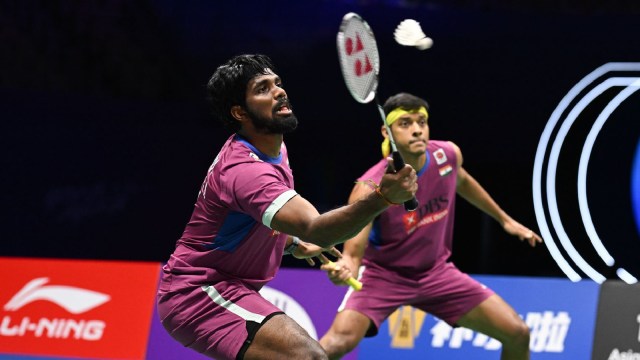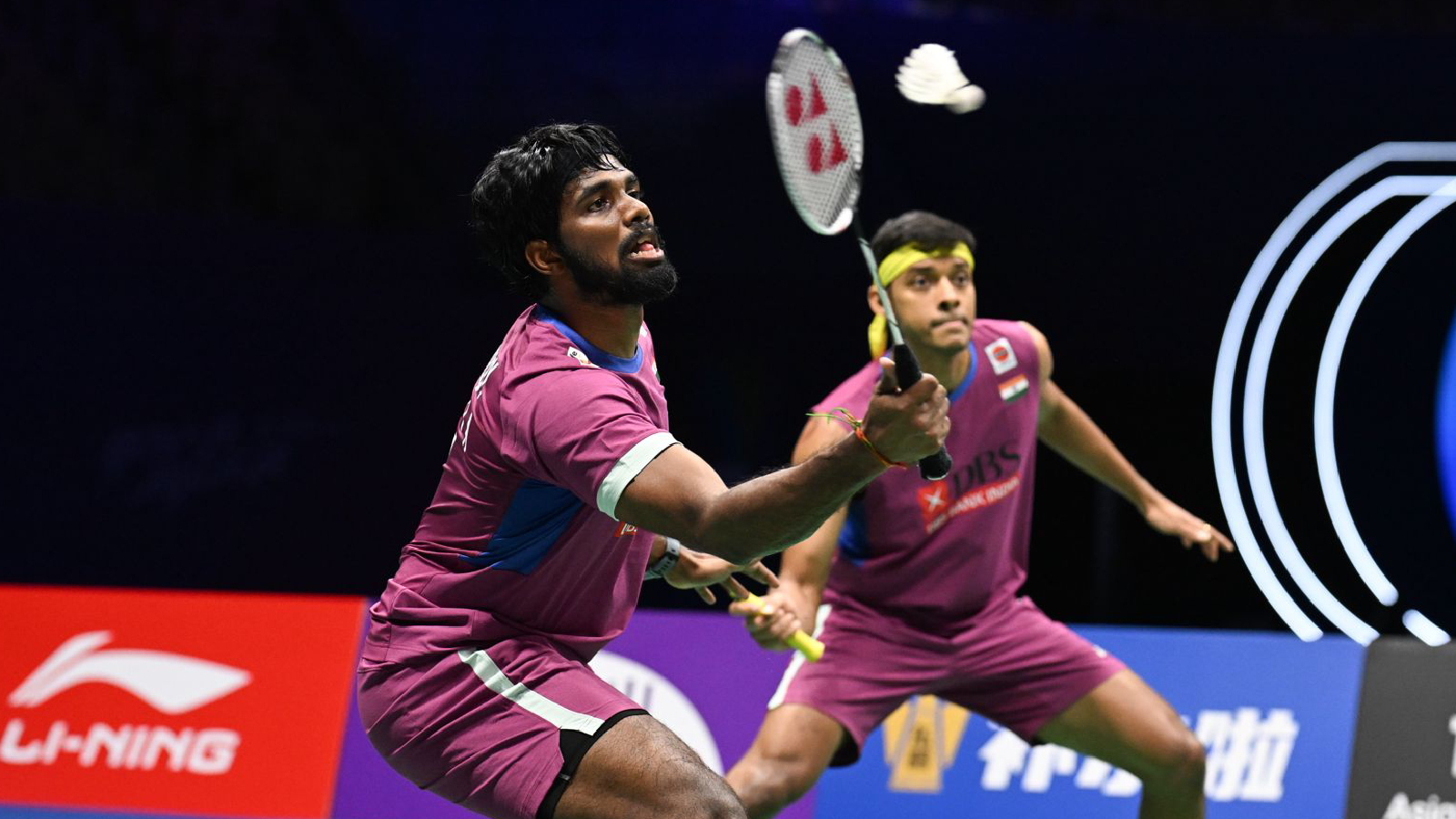
At the midpoint interval in Game 1 in Shenzhen on Saturday, commentator Gill Clark wondered: “I’d be fascinated to know what the average rally length has been so far because there have hardly been lengthy exchanges.” Until that point, the match between Satwiksairaj Rankireddy-Chirag Shetty and the newly formed Korean pairing of Seo Seung Jae and Jin Yong passed off in a blur.
But as both pairs settled into the match, the rallies grew exciting by the minute, sometimes breathtakingly fast and flat, other times physics-defying and jaw-dropping. A 47-shot exchange in Game 2, and then a 54-shot rally in Game 3 were both met with audible gasps from a late-night crowd that was thoroughly entertained. In the end, Seo-Jin prevailed 21-18 14-21 21-16 in a 74-minute thriller at the China Masters Super 750 semifinals.
The defeat was partly down to the Koreans playing out of their skin in defensive situations, often neutralising the big booming smashes of the taller Indians. The lefty-lefty combination is not commonly seen in doubles, so there was an element of adjusting to the angles as well with Satwik-Chirag sometimes getting in each other’s way mid-rally. But mostly, the former world No.1 pair can take heart from the level they showed this past week, playing their first tournament since the heartbreak at the Paris Olympics. Especially considering how it all began.
It doesn’t get better than this! Unbelievable defensive play from Jin Yong and Seo Seung Jae! 💪🏸@HSBC_Sport#HSBCbadminton #BWFWorldTour #ChinaMasters2024 pic.twitter.com/7ZnyRXjf7z
— BWF (@bwfmedia) November 23, 2024
In the opening round against Chinese Taipeir’s Lee Jhe-Huei and Yang Po-Hsuan, they looked out of sorts, going down 12-21. Chirag had said they found it “dicey, didn’t find our rhythm, and didn’t really know what was going on.” Satwik echoed that sentiment after the semifinal defeat: “It wasn’t fun. Felt like we were in shock during the first game of the first match this week, suddenly dealing with a high pace.”
But subsequently, in that match and in the tournament overall, they found their feet. The aggression was back, the radar seemed sorted. Even against Seo-Jin, they had their moments. They led 16-12 in the opening game but couldn’t close it out. They fought back from 7-13 down in the decider, to close the gap to one point at 13-14, but couldn’t push on from there. Playing four high-intensity matches on four consecutive days was eventually a bridge too far to cross.
“I feel we played really well, but they played a little more extraordinary while we were a little bit lacking in patience in the close situations,” Satwik said. “We could have been a little more clever at some crucial points, but really happy. We didn’t expect, to be honest, that we would go this far based on how much practice we had.” Chirag added, “I think we didn’t really know what to expect from this tournament, how far we’ll go, so happy that we made it to the semis.”
Indeed, Satwik’s injury troubles – something he revealed he had been carrying even before the Olympics – meant Chirag had to train by himself while the former spent more time doing rehab. Usually the more consistent of the two, Satwik made a few uncharacteristic unforced errors, while Chirag too was guilty of rushing things at the net, even though he played some spectacular points.
At one point in Game 3, Chirag was squatting on the court in a defensive situation to keep the rally going before he stood up to kill the point at the net. But at 15-17 in the decider, he had all the attacking momentum in the rally but hit the middle of the net with a forehand tap. It could have been 16-17 but the Koreans went ahead 18-15, to eventually close it out.
From the coaching bench, Sumeeth Reddy and Manu Attri tried egging the Indians on – calling for more ‘josh’ at various points – but the physical toll of repeatedly attacking the Koreans when the shuttle kept coming back, proved a bit too much in the end.



